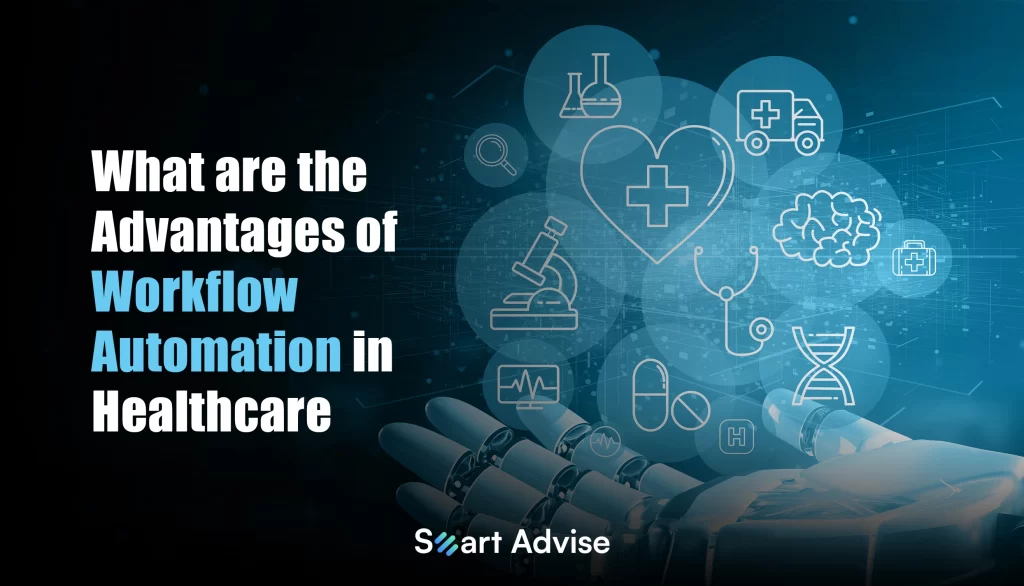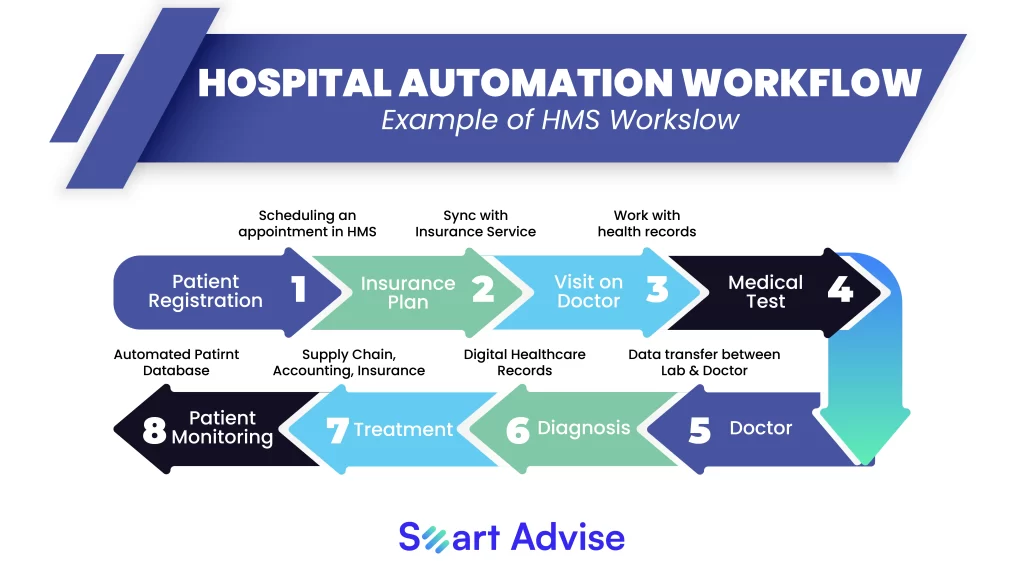
Discover how workflow automation is completely changing healthcare operations by streamlining operations, reducing errors, and providing better care to patients
The biggest obstacle in the healthcare system is the operation hazard. The mismanagement of daily operational workflow directly affects the patient’s care. Right from the appointment to the billing and discharge, healthcare systems involve the same operations as any other industry level operation at any given scale. This might create chaos for the doctors to operate as they are trained in medicines, not in operation, that’s why automation to carry out such operations carries a significant load and smoothens the operation. Let’s go through the list of its advantages, starting with…
Efficiency and Productivity
Workflow automation is a catalyst for heightened efficiency, allowing healthcare professionals to devote more time and focus to delivering exceptional patient care. This streamlining of administrative processes is instrumental in increasing the overall efficiency of healthcare facilities.
By automating time-consuming tasks, such as appointment scheduling and data entry, healthcare staff can redirect their energy towards providing high-quality care and improving patient outcomes.

Improved Patient Experience
Efficiency directly contributes to an improved patient experience. Patients appreciate the convenience of online appointment scheduling, which not only reduces the administrative workload but also ensures a smoother experience for them. Furthermore, automated reminders play a crucial role in patient engagement and adherence to treatment plans.
Error Reduction
Human errors can have profound consequences for healthcare. Workflow automation significantly reduces the potential for errors in patient records, medication administration, and billing, resulting in safer, more reliable care.
Through automation, healthcare professionals can rest assured that critical processes are carried out with precision, reducing the risk of costly mistakes and improving overall patient safety and trust in the healthcare system.
Better Compliance and Reporting
Compliance with industry-specific regulations and standards is a critical concern in healthcare. Workflow automation systems can be tailored to ensure adherence, and they also generate detailed reports for audits and inspections, providing peace of mind for healthcare organizations.
Cost Savings
Reducing operational costs while maintaining high-quality care is a perpetual challenge in healthcare. Workflow automation offers a significant opportunity to address this challenge. The ability to streamline processes, reduce redundancies, and optimize resource allocation translates into tangible cost savings.
Decision-Making
Swift data collection and analysis are paramount for informed decision-making in healthcare. Workflow automation systems can swiftly gather and process data, providing real-time insights that enable faster, more accurate decisions.
Telemedicine Integration
Telemedicine has emerged as a pivotal aspect of healthcare, especially in the face of the COVID-19 pandemic. Workflow automation seamlessly integrates telemedicine into healthcare systems, expanding access to care and enabling healthcare organizations to keep pace with evolving patient needs.
Improved Patient Outcomes
The cumulative effect of enhanced efficiency, reduced errors, and accelerated decision-making is ultimately reflected in improved patient outcomes. Workflow automation has the potential to raise the standard of care and contribute to better patient health.
Streamlined Billing and Revenue Cycle Management
Billing and revenue cycle management have long been challenges in healthcare. Workflow automation simplifies billing processes, resulting in reduced revenue leakage and better financial stability for healthcare organizations. With automation, the often complex and time-consuming task of revenue management becomes more efficient, allowing healthcare facilities to allocate resources where they matter most, ultimately contributing to enhanced financial sustainability.
Better Resource Allocation
Efficient resource allocation is essential in healthcare to ensure that the right personnel and equipment are available when needed. Automation tools can predict patient demand, allowing for more efficient resource allocation and improved overall service quality.
Research and Data Analysis
In an era of big data, research and data analysis are paramount in healthcare. Automation expedites the processing and analysis of large datasets, providing valuable insights that can drive innovation and inform clinical decisions.
Now, let’s turn our attention to the supporting data to underscore the significance of these advantages:
According to a study published in the Solution reach, 60% of patients prefer healthcare providers who offer online appointment scheduling.
A study by Forbes shows that implementing automation in healthcare operations can lead to cost savings of up to 50%.
According to National Institute of Health, in 2026, it is predicted that the use of AI in the healthcare industry will save the United States $150 billion annually.
In Conclusion,
Workflow automation in healthcare offers a multitude of benefits including more efficiency, improved patient experiences, reduced errors, cost savings, better decision-making, and data analysis. Its adaptability and scalability make it a crucial tool in the industry, promising to redefine healthcare by streamlining processes, reducing costs, and delivering superior patient care.
As we move forward, workflow automation is set to play a pivotal role in shaping a healthcare system that is not only more efficient but also more patient-centric and resilient, ultimately leading to improved healthcare outcomes and overall well-being for patients worldwide. To get more such insights of marketplaces, connect with us now!